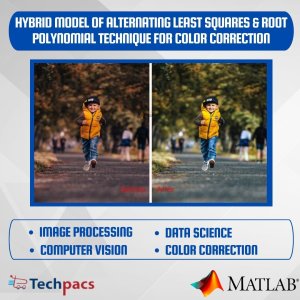Hybrid Approach for Accurate Apple Disease Detection using FCM, SVM, and Decision Trees
Problem Definition
From the literature survey, it is evident that the current state of disease identification and classification in apple leaves using ML and DL based classifiers faces several key limitations. One major issue is the degradation of overall system performance due to challenges such as high computational complexity and long processing times associated with the segmentation techniques used. Traditional models have also struggled to effectively remove or reduce noise in images, resulting in poor segmentation and subsequently lower classification accuracy rates. Furthermore, the majority of researchers have only employed single classifiers in their models, overlooking the potential for significant improvements in classification accuracy by utilizing hybrid models. These shortcomings highlight the pressing need for a more efficient and accurate approach to disease identification in apple leaves, one that addresses the issues identified in the literature review and leverages the advantages of hybrid classification models.
Objective
The objective of this project is to improve the accuracy and efficiency of apple leaf disease detection models by addressing the limitations identified in the literature survey. This will be achieved by developing a structured approach that includes data acquisition, pre-processing, segmentation, feature extraction, and classification. By applying a smoothing median filter to eliminate noise, using the Fuzzy C-means (FCM) algorithm for segmentation, and combining Support Vector Machine (SVM) with Decision Tree (DT) for classification, the model aims to enhance disease detection accuracy while reducing computational complexity and execution time. The goal is to provide a more efficient and accurate solution compared to traditional models by leveraging hybrid classification models and addressing the challenges found in existing approaches.
Proposed Work
In this project, the focus is on improving the accuracy and efficiency of apple leaf disease detection models by addressing the limitations identified in the literature survey. The proposed model follows a structured approach that includes data acquisition, pre-processing, segmentation, feature extraction, and classification. To enhance the accuracy of disease detection, a smoothing median filter is applied to the raw dataset images to eliminate noise and improve segmentation quality. Fuzzy C-means (FCM) algorithm is then used for segmenting the images and extracting Region of Interest (ROI) by allowing data points to belong to multiple clusters. Additionally, the model incorporates a hybrid approach by combining Support Vector Machine (SVM) with Decision Tree (DT) for improved classification accuracy.
The rationale behind choosing specific techniques such as FCM for segmentation and SVM with DT for classification lies in addressing the challenges identified in the literature survey. By utilizing FCM, the model can effectively segment images and extract relevant features for accurate disease detection. The use of a hybrid classification approach aims to enhance the overall performance by leveraging the strengths of both SVM and DT algorithms. By adopting these techniques, the proposed model aims to achieve higher accuracy in apple leaf disease prediction while reducing computational complexity and execution time, thus offering a more efficient solution compared to traditional models.
Application Area for Industry
This project can be used in the agricultural sector, specifically in the apple industry for disease detection in apple leaves. The proposed solutions can be applied in various industrial domains facing challenges related to image segmentation, noise reduction, and classification accuracy. By using a smoothing median filter for denoising images and Fuzzy C-means for segmentation, the proposed model effectively addresses the challenge of poor segmentation caused by noise in images. Furthermore, incorporating hybrid classifiers such as SVM and DT improves the classification accuracy rate, making it a valuable solution for industries seeking accurate and efficient disease detection systems. Implementing these solutions can lead to benefits such as enhanced disease detection accuracy, reduced computational complexity, and faster processing times, ultimately improving overall productivity and quality in various industrial sectors.
Application Area for Academics
The proposed project on apple leaf disease detection using a hybrid model of Fuzzy C-means and traditional classifiers like SVM and Decision Tree has the potential to enrich academic research, education, and training in the field of machine learning and image processing. By addressing the limitations of traditional models and incorporating innovative techniques like denoising with median filter, FCM segmentation, and hybrid classification, this project offers a novel approach to disease identification in apple leaves.
Researchers in the field of agricultural science, computer science, and image processing can benefit from the code and literature of this project to enhance their research methods and explore new avenues for disease detection in plants. MTech students and PHD scholars can use this project as a foundation to develop their own algorithms and models for similar applications in agricultural research.
The relevance of this project lies in its potential applications for improving classification accuracy rates in disease detection, reducing computational complexity, and enhancing segmentation techniques.
By utilizing advanced algorithms like FCM, GLCM, and hybrid classifiers, researchers and students can delve into the intricacies of machine learning and data analysis for agricultural purposes.
The future scope of this project includes further experimentation with different segmentation techniques, integration of deep learning models for enhanced accuracy, and exploration of real-time disease detection systems for practical implementation in agricultural settings. This project can serve as a stepping stone for future research endeavors in the field of plant disease detection and agricultural innovation.
Algorithms Used
FCM is used for segmenting images and extracting ROIs. It allows data points to belong to multiple clusters. Median filter is applied for denoising images before segmentation. SVM and DT are hybridized to improve classification accuracy rate. The proposed model aims to accurately detect apple leaf diseases while reducing computational complexity and execution time.
Keywords
SEO-optimized keywords: ML, DL, classifiers, diseases, apple leaves, segmentation techniques, computational complexity, processing time, noise effect, images, classification accuracy rate, proper segmentation technique, hybrid models, apple leaf disease detection, new model, computational complexity, data acquisition, data pre-processing, feature extraction, classification, smoothing median filter, denoising, noise effect, Fuzzy C-means, Region of Interest, ROI, hybrid classifiers, Support Vector Machine, Decision Tree, plant pathology, crop protection, leaf health, feature engineering, computer vision, plant health monitoring, precision farming, remote sensing, agricultural technology, data analysis, disease management.
SEO Tags
Apple leaf disease detection, ML based classifiers, DL based classifiers, disease segmentation techniques, computational complexity, noise reduction in images, classification accuracy, hybrid classification models, data pre-processing, feature extraction, feature selection, Fuzzy C-means, Region of Interest, SVM, Support Vector Machine, Decision Tree, AI in agriculture, image classification techniques, plant health monitoring, crop protection, precision farming, agricultural technology, plant disease management, research methods, PhD research topic, MTech project, research scholar, literature survey, machine learning algorithms, data analysis techniques
| Shipping Cost |
|
No reviews found!

















































No comments found for this product. Be the first to comment!